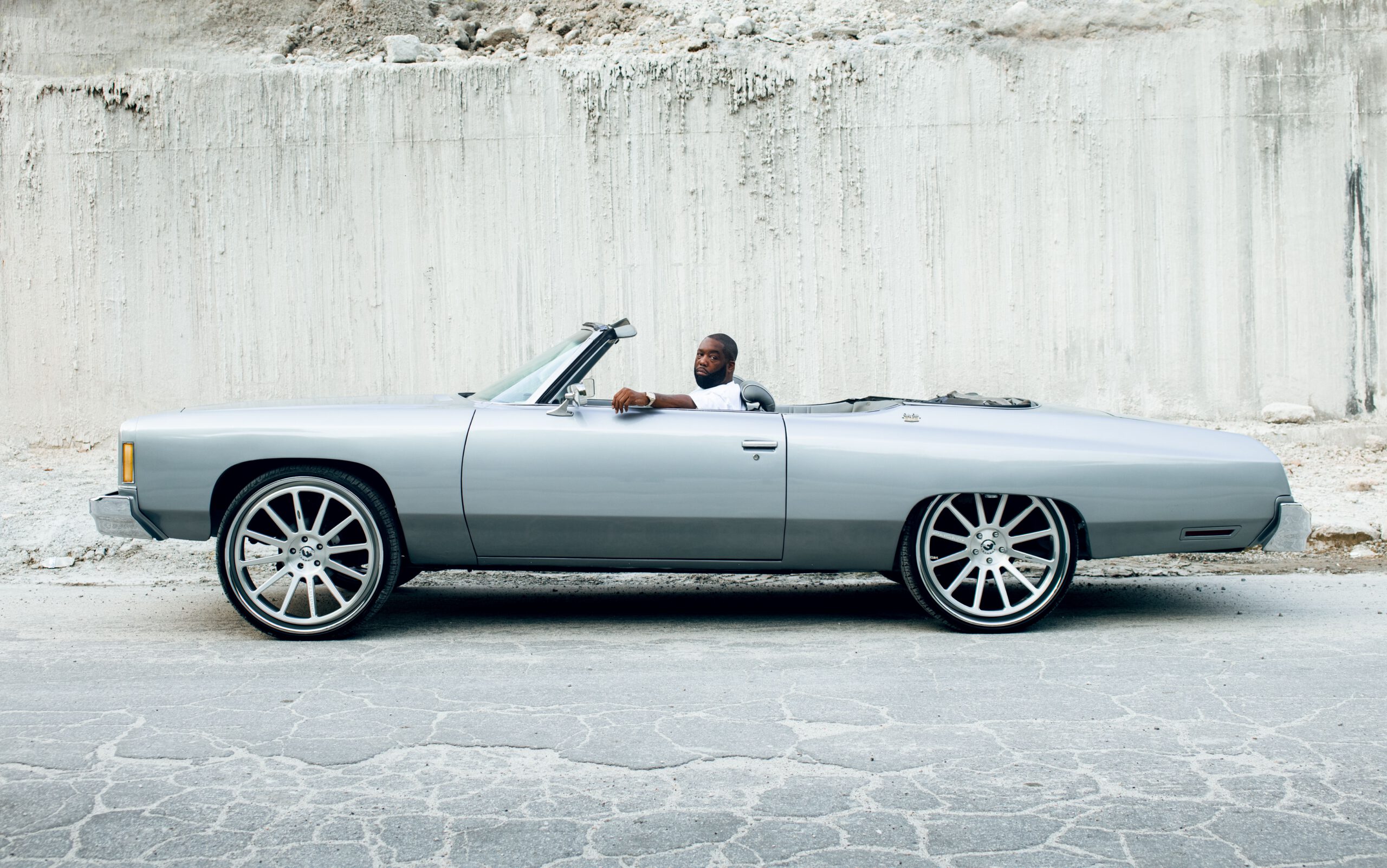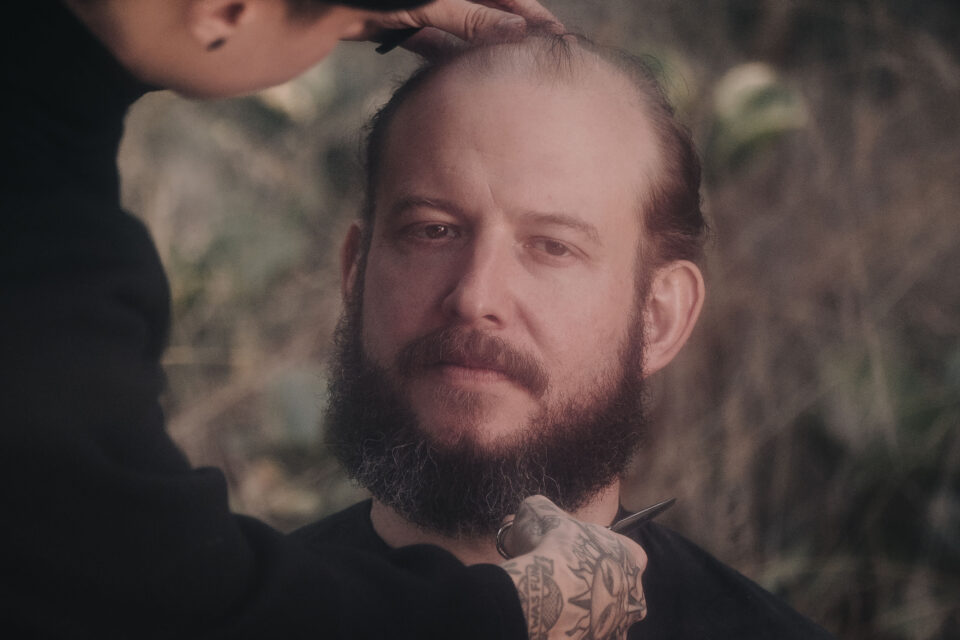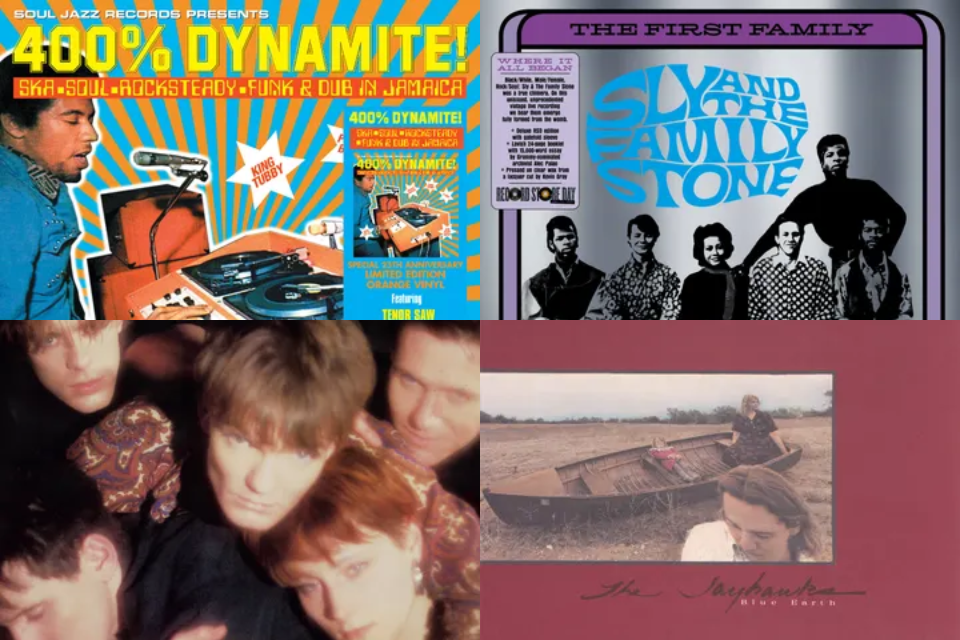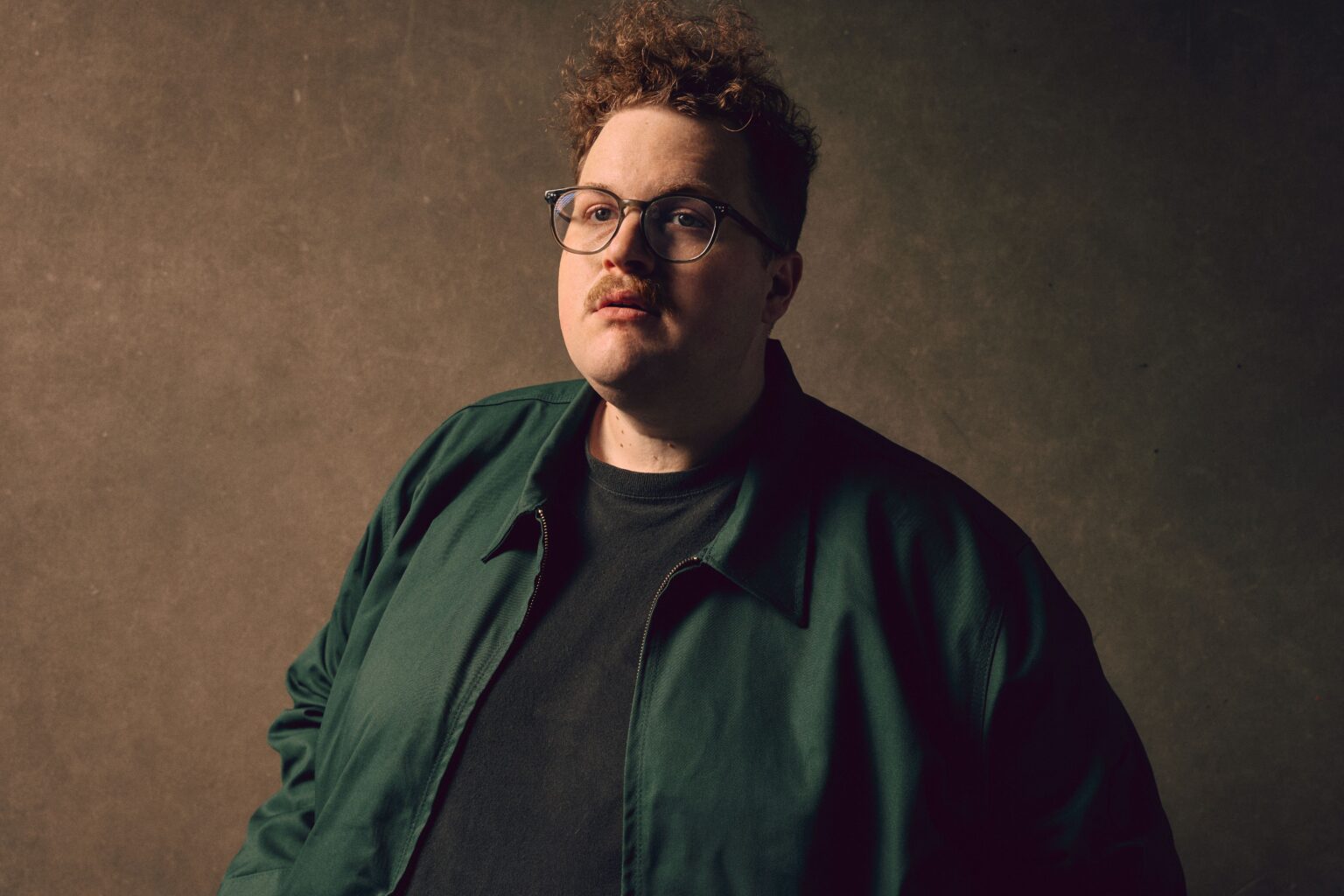It has been almost a year to the day since we spoke to Killer Mike before the release of his first solo single since 2012, “Run” featuring Young Thug. We discussed the inspiration behind the song, hip hop lyrics being put on trial, the RICO case against Young Thug and YSL, and Run The Jewels opening up for Rage Against the Machine.
As we wrapped the last interview, I asked him about new music and he said, “Michael is going to continue to do music in some capacity, until I’m an old man with a lot of gray hair. Look for Michael to keep making music in some capacity.” Now, a year later, we sit on another Zoom call talking about his first solo album since R.A.P. Music back in 2012: his latest project Michael.
Yes, Michael was already in the works last summer, so maybe Killer Mike answered my question in third person to drop that nugget that new music was on the way. But in all actuality, this album was a lifetime in the making. Michael is Killer Mike’s most personal and vulnerable album to date — an audio biography of the nine-year-old Michael Render on the album cover, a boy with a halo and devil horns over this head dreaming about being an emcee and the challenges he would have to go through to get there.
From drug dealing in Atlanta on the song “Something for Junkies” to saying his mother, Denise, was dead for the first time on the song “Motherless,” each song on the album serves as chapters in the journey of Michael Render.
“If you close your eyes, you visualize the characters, it becomes a movie,” he says. “I’ve put three years of my life into this. I have lived a lifetime and had to go back. Being home during COVID allowed me to drive the same streets I grew up on, fellowship with the same family. It’s a prodigal son, it’s a homecoming, it is an everyman story told by a black boy from a chocolate side of town in a chocolate city. But every worker class man can identify with this and the women who love them.”
“This was three years in the making,” he continues. “It started with me and Cuz Lightyear, who’s an amazing artist himself, but he A&R this record. It started with us saying, ‘We’re finally home.’ So, we’re going to treat it like third shift at UPS, we are going to go in at ten at night and we’ll come out at four or five in the morning. We are going to see what we got and at the end of every week, we’re going to keep the best and throw away the rest. We ended up recording 39 records. I knew what I wanted to talk about, and I knew how I wanted it.”
What he wanted was a completely Southern record that provided the score to the movie of Michael’s journey through Atlanta. He merges the Southern hip hop that inspired him throughout his life with gospel elements, piano and organs, make you feel like you are walking into a church service on Sunday. In adding the voices of Lena Byrd Miles and Eryn Allen Kane, who is featured throughout the album, Killer Mike created a spiritual experience on Michael.
“Ray Murray from Organized Noise would come in and say, ‘Hey, if y’all doing a record, it got to be distinctly Southern, keep following that path,’” he said. “It’s got to be as cohesive as The Chronic. Anything that doesn’t fit, don’t worry about it, just move it to the side, and you’ll find another use for it. It gave us a certain discipline. I treated it like a working-class man, and I went to work every day. I treated it like an artisan that I didn’t limit myself.”
“I stayed that 9-year-old boy on the cover who wanted to be a rapper,” he continues. “I made sure that I brought truth and transparency in a way that I had never done, that even at its best, rap hasn’t always done and is not currently doing. “Something for Junkies” couldn’t have been made by anybody but Michael Render. “Shed Tears” should be felt by every working-class man, a son or daughter. When you talk about this movie, album, or whatever you want to call it, you push play, and it goes. 53 minutes later, you’ve had an emotional ride, rollercoaster, a human experience, a testimonial unlike many others.”
On the Record: A Q&A With Killer Mike:
Marquis Munson: These stories on this album are deep and personal. How were you able to get into that comfortable space to share these words and show your vulnerabilities on songs like “Something for Junkies” or even “Motherless?”
Killer Mike: You got to be uncomfortable. I’m not comfortable talking about it now. I’m not comfortable because I feel guilt and remorse from having been a teenage petty drug dealer. I feel guilt and remorse for having seen my people treat one another as indentured servants or slaves. I feel the empathy of addiction because at some point in her life, my own mother battled addiction and so many family members who you love or revered and people you respect. For me, I wanted to speak about our community in total and not be condescending, judgy, or preachy, but just this is who we are. Some of us are addicts, and I challenge us not to treat addicts like slaves, but to treat us like human beings.
At the end of “Something for Junkies,” Fabo singing, “Somebody somewhere praying ‘I hope my mama don’t die,'” and then you go right into “Motherless” because my mama died, and your mama going to die, somebody else Grandma was going to die, and those emotions don’t separate from one another. Many of our mothers have battled addiction. If you can hear the cuts in the end, “Your mama’s on crack rock,” that used to be the way you handled it in the ’90s, it was almost like a tease, because everybody mamas were having some kind of fun doing something. But man, to have to sit back and listen to how it affected us. To know that somebody empathizes and understands, that’s just something I felt was important. For me, I just wanted to touch people’s hearts. I don’t want you sitting around logically wondering how many bars I did, how many rhymes that I rhymed within a rhyme, that’s been done. It’s a cute trick, I did it a couple of times on here. Listen to “Scientists and Engineer,” I super rapped my tail off. But I say things that are going to pierce your heart and that’s what I wanted to happen.
MM: What was that session like for you recording “Motherless?” That had to be tough for you going into the booth and the first thing that comes out of your mouth is “My mama dead, my grandmama dead.” That had to be a hard studio session for you to put this song.
KM: Hard is an understatement. I wasn’t going to do it; I wasn’t trying to do it. No I.D. executive produced the album and he said, ‘What are you really afraid of?’ I said, ‘I’ve already faced my fears, my grandma died, my mama gone, I’ve faced my greatest fear.’ He said, ‘Well, that’s what you are going to rap about.’ I said, ‘What? Nah, Ghostface [Killah] already did “Motherless Child,” what are you talking about?’ He pulled up a beat, I didn’t like the beat, he changed the beat right there in the studio. Eryn Allen Kane, who’s all over this album — I’m blessed to have been introduced to her by my man, Hannibal Buress, my comedian partner, because her voice is anointed, as the old folks will say. I went in the booth, and I don’t write, so I stand in the booth until I get inspired, and the words start to flow. I never said it. I’ve said, my mother’s transition, she’s gone, she’s with our ancestors, I found all kind of cool words. I called my man T.I. to ask for some big words to say. [Laughs]
But I just said “My mama dead, my grandmama dead, to keep it honest, I get depressed and be feeling scared. You see I wasn’t prepared and never will be. The think about your death, Denise, sometimes, it kills me.” And that’s honestly, I feel. I have an altar for her and my grandmother in my home. I usually get up, meditate, do my prayer, smoke a joint, and I talk to them both. They still live in my head. I still hear their voices. I still feel their presence. I know that energy does not die. I know they are with my ancestors somewhere and they are doing the bidding of making sure that me and my lineage are going to be okay. But I miss her, I want to call her some days. There was an argument we had at her mother’s funeral. I talk about it in the second verse when you hear me say, “My mama dead, her mama dead. Her mama died in my arms, my ma said that wasn’t fair. Her mama raised me, I told her she crazy. She told me, ‘One day I’m going to be gone, Michael, you gon see. That my mama wanted you, but you belong to me. And you don’t understand the sacrifice that took from me.” And when she died, I understood. I couldn’t call her and say, ‘You’re right.’ I couldn’t call her and say I was wrong, and that I apologize. I have to sit with the last thing she told me was that, in terms of her mother’s death, you don’t understand the sacrifice it took, and I didn’t. Now I do and she’s gone.
MM: I’m glad you mentioned Eryn Allen Kane because she’s like the woman in church everybody knows can sing. When she walks up to the podium, everybody is on the edge of their seats. She also brings out the emotion on this record. I think every lyric that you rap on this album, the mixture of her voice and emotion, you can feel it on this record.
KM: Well, that’s purposeful and it’s not just Eryn. I wanted to make sure people coming out of this who might not know her, know her now, so, we are featuring her. But beyond that, Agape Jerry on guitar, Damien “Dammo” Farmer on bass, Warryn Campbell on the organ. Same players all the way through. Every cut is DJ Cutmaster Swiff from Outkast. So even the subtlety of cuts I wanted the pro, the person who got it to take us through. This is a movie. This is a church service. This is an organized event meant to hit play a live through. I wasn’t going out chasing no new character. Every feature is purposeful and intent, there’s a reason why. So, I appreciate you appreciating Eryn because I do.
I appreciate Lena Byrd Miles who sang on “Shed Tears.” A real gospel singer, that’s a real gospel song. We ain’t got a curse word in it. We just thank the Lord. I wanted people to understand that the other characters who help bring this to life are as important to me. Which is why not only have we put out the records, but we’ve also put out credits so you can go, just like in the old days, you could go open the tape, open the record and see who wrote, who sang, and who played. You can do that because the people that helped me bring this to life are so important to me. The title is Michael, but it is not a one man show.
MM: I want to go back to our previous conversation from last year. We talked about El-P’s importance during your R.A.P. Music era and finding that magic with him and marrying it. It seems like you’ve done the same with No I.D., who executive produced this album. You’ve said you wanted to work with him for years. So how important was his contribution to this record?
KM: Oh, man, it was important as Luke Skywalker going to live in a swamp with Yoda. The magic of me and El-P is like we’re 15-year-old kids just pulling for each other. El-P writes the treatment for “Don’t Let the Devil,” which is an ode to these parties my mom used to throw. First and foremost, I’m one half of Run The Jewels and very proud to be. Run The Jewels is this uncanny X-Men like universe that includes everybody from me, El-P, Zack de La Rocha, DJ Trackstar, Gangsta Boo, God bless died. There is just a plethora of people, but the origin story is about Michael. Michael is Wolverine’s origin story. With this record for me, Dion [No I.D.] was like Yoda in the swamp. Luke Skywalker was a Jedi. He had power, but he had to get by himself to fully realize that power. He had to get with someone who could guide him through how to be by himself. The most beautiful thing about working with Dion is the questions he asks you. ‘Well, what do you think?’ Because it forces you to make a decision. ‘Sonically, I think we should do this.’ All right, we’ll do it. And then you do it and hear it the next day like, ‘Oh, man, that worked.’ He said, ‘Yeah, I knew it was going to work yesterday. I was just happy to hear you say.’ So, he’s not doing it for me.
It’s not like in Run The Jewels where most of the heavy lifting from the production side was El-P. I had to get into trenches. I better understand El-P and the insanity that comes with producing. I had the chance to team and partner with Cuz Lightyear in a way that grew me. I had a chance to put myself on a discipline in terms of recording and how I listen to things. So, I learned to be by myself. And I don’t mean alone, but by myself in the decisions I was making. Dion taught me the importance of working with professionals. That doesn’t mean you don’t work with talented musicians, but a professional comes in a room hearing. When Dammo sat down he was already hearing the bass lines, I didn’t have to describe.
Working with pros, everybody dreads playing Golden State. There’s a lot of professional basketball players, but when everybody is hitting on sync, when the Joker [Nikola Jokic] and the Denver Nuggets were hitting on sync, it was hard to beat the boys. I learned how to read and ride the right inclinations and not question myself. Not letting a doubt in my mind. I learned from Corey Mo that when people believe in you, the patience they have. Corey Mo held an intro beat for “Down By Law,” for two or three years. That ended up being one of the best intros on a rap album ever, because he has faith in me. I just appreciate Dion for showing me how to let people bring their very best without getting in their way. To trust the people around you. So I learned from it. Again, he’s like a Yoda like figure in my life. I come out of this record a much better record maker and rapper than I was going in. And I was already damn good, in my opinion.
MM: I want to go back to something you said earlier about Ray Murray telling you to make a Southern record. Because sonically when I listen to this record and hear the production from DJ Paul, Cool and Dre, Honorable C.N.O.T.E., even elements of church organs and pianos throughout the album. Was that merger of gospel and hip hop a part of the ideal blueprint for this album?
KM: Purposeful. Absolutely. This is a prodigal Southern son returning home. The only thing I’ve ever seen comparable is what Jelly Roll is currently doing. He went more into country and singing. Shouts out to Jelly Roll, I love the music. But in terms of hip hop, nobody’s ever done this. Nobody’s ever said, ‘I’m going home.’ I’m going home to what Dungeon family, Suave House, and early Rap-A-Lot, Devin the Dude, Odd Squad, Scarface, and what my region has given me. I’m going home to church. Even if I don’t believe, like they say I should believe. Even if I don’t practice Abrahamic religions, I got a morality out of this small, hot, Christian church that my grandma used to have us in, that needed to be an empathy and an understanding. I’m going home. I’m physically home in Atlanta, recording at home. And then we go out to L.A. But I just took home to L.A. with me. Brought my wife and my dog. For me, it’s just a homecoming. I feel so good about it, I think I want to do it a couple more times.
MM: But speaking of Dungeon Family, you got a verse from Andre 3000 on “Scientists and Engineers” and Future as well. You are one of few people that can get Andre to do that, to come out with a verse like that. So how did it happen?
KM: I don’t have no special powers and I didn’t go asking. I’ve asked for decades, and it just wasn’t the right time. Like, ‘Hey Kill, I like the song, but I just ain’t with it right now.” He’s seen me work my butt off for the better part of a decade or more. It matters to me what Andre 3000 and what Big Boi think of my music because they gave me an opportunity that changed my life. It’s just no other way to say so it. I just played the album for him as it was at the time, and he said, ‘Hey, do you mind if I come back tomorrow?’ What he was doing was coming back just playing with some thoughts and ideas he had. When I picked two like and he said, ‘Pick what you like and just keep it and use it.’ One I kept and one he took back, so we ended up doing another one. I got one that we’ve got in the vault that’s amazing, it’s like 11 minutes long. And I got this one and him and Future jump down. And man after that, I was just like, ‘Wow, now you got to really step it up. You finally got what you asked for, fat boy.’ [Laughs] ‘Now you have to show up and show out.’ The Dungeon Family always did great collaborative record. Whether it was “Git Up, Git Out” with Outkast and Goodie Mob or “Watch for the Hook” with all of them. I’m glad that I can put them on the shelf next to those classics. I can finally say I made a Dungeon Family classic.
MM: This album is like a Dungeon Family reunion with Rico Wade, Cee-Lo Green, you mentioned Ray Murray, Andre 3000, and Future. As we celebrate Hip Hop 50, how would you define that importance of the Dungeon family of hip hop?
KM: Just one of the most important Southern collaboratives in hip hop. We’ve had a lot of amazing collaboratives. You could take a Willie Hutch sample and it’s going to sound different in Memphis, Houston, New Orleans, Miami, and in Atlanta produced. They defined a sound for Atlanta. They gave us substance to Atlanta that can only be created in Atlanta. Not everybody gets a chance to make history and those that are prepared to do it when it’s time to get done will be remembered forever. It feels good to be a part of a crew that’s going to be remembered forever.
MM: When I think about classic hip hop albums that go into these deep topics and storytelling, I think about Illmatic, good kid, m.A.A.d city, Ready to Die, Carter 3, all these albums got one thing in common, and that’s a childhood photo on the album cover. What goes through your mind now when you see that nine-year-old Michael on the cover of this album with a halo and devil horns?
KM: Oh, man, I’m still that kid. If I could go to my third-grade class, I would sit next to him and say, ‘Hey kid, first, it’s going to work. I can’t tell you everything you’re going to have to go through. But at the end of it, all those fast cars, your wife has a great rack and butt too. All of it’s going to work out, kid.’ [Laughs] ‘Everything you ever thought about is going to work out. It’s going to be hard and it’s going to be difficult. But you can’t stop.’ Because a child’s imagination, unless deterred or shut off, is endless and boundless. There were two brothers whose last name was Wright and decided they could take flight, and they did. Look at us now. There was a young man named Booker T. Washington who said, ‘Hey, I think education is what’s going to give us our salvation.’ Ended up building the college that gave us some of the greatest minds.
I just think that nine-year-old kid who decided to be an emcee, he didn’t know how to fail because his momma told him after smoking a joint, ‘Yup F it, that’s what you going to do.’ Thank God Denise encouraged me. Thank God that no one really tried to discourage me because I figured it out on my own. I was on a journey that took a lot longer than I thought it would. But a child’s imagination unadulterated is a powerful thing. That wasn’t originally the cover. The cover was going to be something else at first. At the last-minute Cuz Lightyear said, ‘I hate to do this to y’all, but this is one of the covers the label sent over like a single cover, I think this is the album cover.’ And that’s why it’s important to have friends that are honest with you. As an A&R and as a friend. He called at the last minute like, ‘I hate to do this to you, Kill, but I think this is the cover.’ And he was right. That is me and that is my personality to this day. That mischievous little kid with the horns and halos. If I keep him alive, I think I’ll keep rhyming.
MM: Killer Mike and the Midnight Revival coming to the Mother Church, Ryman Auditorium on July 14. What can attendees expect at Ryman?
KM: You can expect a spiritual experience. I’m not just coming to do a rap show. I’m not just coming with my DJ and walking across the stage being the most badass of the night. I do that, too. You come to Run The Jewels show in Atlanta, New York, Chicago, L.A. We are doing four nights each of those cities. But this is a spiritual experience. Be prepared to come to church. We are going to celebrate, get high and holy.




